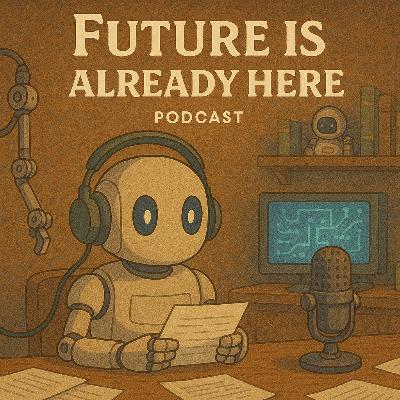MapReduce - Google's secret Sauce
Description
This podcast episode provides an overview of the MapReduce programming model and its implementation, as described in the paper "MapReduce: Simplified Data Processing on Large Clusters" by Jeffrey Dean and Sanjay Ghemawat.
We cover
• The core concepts of MapReduce, including the map and reduce functions, and how they process key/value pairs to generate output.
• How the MapReduce library automatically parallelizes and distributes computations across a large cluster of commodity machines. It handles partitioning of data, scheduling, fault tolerance, and inter-machine communication, allowing programmers without experience in parallel systems to use large distributed systems.
• The implementation details of MapReduce at Google, including how input data is split and processed, how intermediate data is handled, and how reduce tasks operate.
• Fault tolerance mechanisms, such as how the system handles worker and master failures through re-execution of tasks and atomic commits.
• Optimizations, such as data locality, which aims to schedule map tasks on machines holding the input data. It also discusses backup tasks to mitigate stragglers.
• Refinements to the MapReduce model, such as custom partitioning functions, ordering guarantees, combiner functions, and the ability to handle different input and output types.
• Practical examples of MapReduce usage, such as distributed grep, URL access frequency counting, reverse web-link graph creation, term-vector generation, inverted index creation, and distributed sorting.
• Performance measurements of MapReduce on a large cluster, including grep and sort programs, demonstrating its efficiency and scalability.
• The impact of MapReduce at Google, including its use in large-scale machine learning, data mining, and the Google web search service.
• A discussion of related work and how MapReduce differs from other parallel processing systems.
Credits: This episode is based on the research paper "MapReduce: Simplified Data Processing on Large Clusters" by Jeffrey Dean and Sanjay Ghemawat, Google, Inc.
Disclaimer:
Please note that parts or all this episode was generated by AI. While the content is intended to be accurate and informative, it is recommended that you consult the original research papers for a comprehensive understanding.





